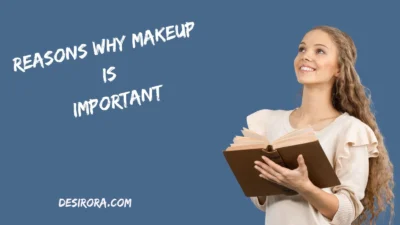Comedy isn’t just about getting a good laugh at the end of a long day—it’s a lifeline. From ancient philosophers like Aristotle to modern satirical shows like Last Week Tonight with John Oliver, comedy has always carried weight. It comforts, challenges, critiques, and inspires. But why exactly is comedy so important in our lives, our societies, and even our health?
Let’s explore the many reasons why comedy is important, weaving together science, history, culture, and personal stories.
The Timeless Role of Comedy in Human Life
Comedy is as old as humanity. Plato once said that laughter reveals truth, while Sigmund Freud linked humor to the unconscious. For centuries, comedy has been used to mirror society’s absurdities, highlight injustices, and entertain crowds in taverns, theaters, and now on digital platforms.
Think of Lenny Bruce, George Carlin, or Richard Pryor—comics who didn’t just make people laugh but also held a mirror to politics, race, and everyday struggles. Their wit transcended simple jokes; it was thought-provoking satire.
Comedy connects us across borders, generations, and languages. Whether at a pub in Ireland, a Broadway show in New York, or watching a stand-up in Los Angeles, the communal release of laughter bonds people.
Comedy as Medicine for the Body and Mind
There’s an old saying: laughter is the best medicine. And it’s true—science backs it up.
- Laughter releases dopamine, the “feel-good” hormone, which helps fight stress and improves mood.
- It reduces pain perception and boosts the immune system.
- Cardiovascular studies show that laughing regularly can improve heart health.
Imagine being at a comedy club like the Funnybone or Improv. The crowd erupts in laughter, your stomach hurts, and tears stream down your face. That’s more than fun—it’s therapy in disguise.
Comedy also plays a big role in mental health:
- It helps patients cope with anxiety, depression, and stress.
- It provides a lighter perspective in tough moments, whether it’s dealing with loss, bills, or work struggles.
- Doctors even recommend comedy-based interventions as part of therapy sessions.
Building Emotional Connections Through Laughter
Comedy is a social glue. Shared laughter strengthens bonds—whether with friends at a party, coworkers at the office, or strangers in a theater.
- Jokes are natural ice-breakers in awkward situations.
- Families who laugh together report better emotional connections.
- Comedy creates inside jokes that become part of lifelong memories.
A good example is the sitcom Black-ish. While funny, it also opens up space for families to talk about race, culture, and identity—mixing laughter with meaningful conversations.
Comedy and Social Justice: Humor With a Purpose
Comedy isn’t only about escape; it can be strategic activism.
Lauren Feldman, an associate professor at the School of Communication and Information, explains that comedy’s serious role is to address injustice while making difficult issues more approachable.
Shows like The Daily Show with Trevor Noah and Patriot Act with Hasan Minhaj prove this. They use satire to shed light on:
- Climate change
- Immigration policies
- Racial injustice
- Sexual assault laws
Consider Amanda Nguyen, a survivor of assault, who used a viral Funny or Die video to push for the Survivors’ Bill of Rights Act. With humor, she gained visibility and mobilized thousands to petition Congress. That campaign eventually led to federal legislation signed by President Obama in October.
Comedy breaks down barriers and makes activism disarming yet persuasive.
Comedy in the Digital Era: From Sitcoms to Memes
Comedy has adapted to technological disruption. From live stand-up to YouTube vines, TikTok sketches, and meme culture, comedy thrives in the digital-era entertainment marketplace.
- Satirical news shows like Last Week Tonight deliver deep dives into serious issues.
- Influencers and comedians use Instagram reels to spread awareness while entertaining.
- Memes during the coronavirus pandemic created a sense of solidarity, easing fears and loneliness during distancing.
Comedy in the digital world is boundary-pushing, socially critical, and globally accessible. It’s not just entertainment—it’s a form of public engagement.
The Science of Laughter: What Happens in the Brain
Neuroscientists like Scott Weems explain that humor involves complex brain gymnastics. It activates areas related to:
- Creativity
- Problem-solving
- Emotional regulation
When you hear a set-up and punchline, your brain processes incongruity and quickly reframes it. That mental leap sharpens agility, perspective, and intelligence.
Table: Synonyms & Emotional Effects of Laughter
| Synonym for Laughter | Emotional Effect | Example Use |
| Giggle | Light joy | Children giggle during cartoons |
| Chuckle | Warm amusement | A friend chuckled at your pun |
| Belly laugh | Full release | Comedy club performance |
| Snicker | Secret amusement | Snickering at an inside joke |
| Roar | Loud collective joy | Stadium waves of laughter |
Comedy as a Mirror of Society
From Rodney Dangerfield in the early 80’s to Dave Chappelle today, comedy has always reflected society’s absurdities.
Satire, parody, and irony challenge authority, politics, and cultural norms. When John Oliver exposes unfair policies or when Chris Rock critiques race dynamics, the laughter is only the entry point. The deeper goal is to provoke thought and discussion.
As Sophie Quirk, author of Why Stand-up Matters, notes: stand-up comedy is not just entertainment; it’s social commentary.
Breaking Barriers: Inclusivity and Marginalized Voices
Comedy gives visibility to marginalized groups. From LGBT comedians like Stephen Amos to activists like Josie Long, humor becomes a weapon against stereotypes.
- Liz Carr used her platform on Silent Witness to highlight disability rights.
- Hasan Minhaj reframed immigrant struggles through humor in Patriot Act.
- #MeToo activists used satire to dismantle silence around sexual harassment.
Comedy creates a safe space for difficult conversations—whether about racism, homophobia, or sexism.
Comedy in Public Engagement and Advocacy
Advocacy organizations know that humor is strategic. Funny campaigns reach wider audiences and increase public engagement.
- Memes act as modern policy briefs, simplifying complex issues.
- Comedians like Negin Farsad blend activism with humor, showing how White People Laugh can be a manifesto for cultural critique.
- Satirical coverage often sparks discussions mainstream media won’t touch.
Comedy reframes debates in ways facts alone cannot.
Comedy Across Cultures and Borders
Comedy transcends borders. From British dry wit to American stand-up to Iranian underground comedy clubs, humor reflects both cultural uniqueness and shared humanity.
Anthropologists note that laughter is a communal release, present in funerals, pubs, and festivals. It humanizes us, nourishes our souls, and builds connections across divides.
Even during international crises, humor has been a lifeline—creating optimism and unity.
Personal Growth and Confidence Through Humor
Comedy is also personal. Trying stand-up or improvisation boosts confidence and public speaking skills.
- Professionals use humor to become better communicators.
- Students use wit to connect with peers.
- Leaders use jokes to disarm tension in meetings.
Comedy strengthens creativity, resilience, and self-acceptance. Self-deprecating humor, for example, liberates us from shame and highlights emotional maturity.
Comedy in Everyday Life: Escaping Stress and Struggles
Life is stressful—bills, jobs, family responsibilities. Comedy offers an escape from the grind.
- A good sitcom after work is a detox for the mind.
- Sharing jokes with friends reduces negativity.
- Comedy brightens spirits in overwhelming situations.
Even during tough moments—loss, illness, or global crises—laughter helps us cope and preserve perspective.
The Art of Comedy: Creativity, Wit, and Storytelling
Comedy is an art form requiring sharp intelligence and creativity. It blends:
- Set-up and punchline structure
- Clever wordplay
- Storytelling that feels relatable
Great comedians like Amy Schumer, Michael McIntyre, or Marc Maron bring personal stories to life, transforming flaws and failures into entertaining narratives.
Comedy writing sharpens wit, inspires aspiring writers, and keeps creative juices flowing.
Comedy as Therapy: Healing With Humor
Therapists often use humor in clinical settings. Patients with depression, anxiety, or trauma benefit from comedy as a coping mechanism.
After tragic events like 9/11, comedians carefully reintroduced humor as a way for communities to heal.
Avner Ziv, a psychologist, argued that humor helps us manage tragic realities by reframing them into something less overwhelming.
Why We Need Comedy More Than Ever
Today’s world faces climate change, misinformation, pandemics, and social injustices. Comedy is not optional—it’s necessary.
It gives us:
- A safe release from stress.
- A way to challenge unjust systems.
- A bridge between diverse groups.
- A reminder of our shared humanity.
Comedy is more than funny—it’s a serious tool for survival, growth, and solidarity.
FAQs About Why Comedy Is Important
Q1: Is comedy really good for health?
Yes. Studies show laughter reduces stress, boosts immunity, and improves cardiovascular function. It’s like a free workout for the body.
Q2: How does comedy help with tough situations?
Comedy reframes problems, making them feel lighter. It builds resilience and gives people perspective during struggles.
Q3: Can comedy create social change?
Absolutely. From John Oliver’s satirical news coverage to activist campaigns, comedy spreads awareness and mobilizes communities.
Q4: Does everyone find the same things funny?
No. Humor is cultural and personal. What’s hilarious in one culture might not translate in another. But the act of laughing is universal.
Q5: How can I use comedy in everyday life?
Use humor to break the ice, manage stress, and connect with others. Even light jokes or funny memes can brighten someone’s day.
Conclusion
Comedy is far more than entertainment—it’s medicine, art, activism, and connection. It heals our bodies, strengthens our communities, and challenges injustice. From stand-up stages to viral memes, from personal friendships to global advocacy, comedy continues to play a vital role in human life.
So the next time you laugh until your ribs hurt or tears stream down your face, remember: it’s not just fun—it’s proof that comedy is one of the most powerful, positive forces we share.

Thomas Hardy is a passionate innovator and thoughtful leader, dedicated to transforming ideas into lasting success. With creativity and purpose, he brings vision and authenticity to everything he does.



